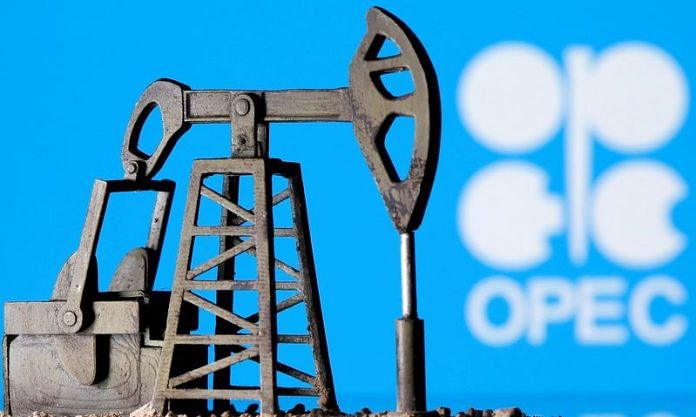By Robert Harvey
LONDON (Reuters) -Oil prices fell by more than $1 a barrel on Thursday after Angola announced it is leaving the Organization of the Petroleum Exporting Countries (OPEC).
Brent crude futures were down $1.30, or 1.63%, to $78.40 a barrel by 1419 GMT, while U.S. West Texas Intermediate crude was lower by $1.19, or 1.60%, at $73.03.
Angola’s oil minister Diamantino Azevedo said the country’s membership in OPEC was not serving its interests.
At a meeting in November, Angola had protested a decision by OPEC to cut its production quota for 2024. Angola’s oil production is around 1.1 million barrels per day (bpd).
“From an oil market supply perspective, the impact is minimal as oil production in Angola was on a downward trend and higher production would first require higher investments,” said Giovanni Staunovo, an analyst at UBS.
“However, prices still fell on concern of the unity of OPEC+ as a group,” he added, referring to the producer alliance that includes Russia.
Oil prices had been relatively stable from yesterday’s levels prior to the news out of Angola, with Brent trading near $80 a barrel, as investors balanced higher inventories and record output in the United States with jitters over global trade disruptions in the Red Sea.
“With such a heavy load of US crude reported in increased measure, one can only assume that the market remains edgy in regard to supply diversion or even hiatus caused by the Houthi attacks on shipping,” PVM analyst John Evans said.
The U.S. Energy Information Administration (EIA) said on Wednesday that U.S. crude inventories rose by 2.9 million barrels in the week to Dec. 15 to 443.7 million barrels, compared with analysts’ expectations in a Reuters poll for a drop of 2.3 million barrels.
The EIA said U.S. crude output rose to a record 13.3 million barrels per day (bpd) last week, up from the previous all-time high of 13.2 million bpd.
Both benchmarks had settled higher on Wednesday for a third straight session, with investors worrying about trade disruptions as major maritime carriers chose to steer clear of the Red Sea route, with longer voyages increasing transport and insurance costs.
(Reporting by Robert Harvey and AHmad Ghaddar in London, Yuka Obayashi and Sudarshan Varadhan; editing by Paul Simao)
Disclaimer: This report is auto generated from the Reuters news service. ThePrint holds no responsibilty for its content.



